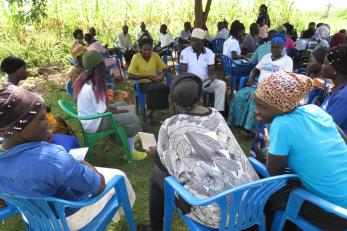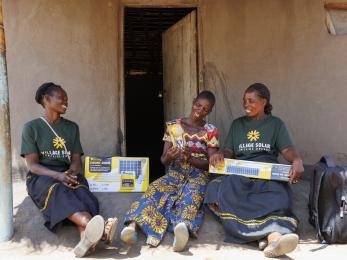The Midline Impact Deck

In Uganda, refugees and asylum-seekers struggle to make ends meet, with limited access to financial services hindering their ability to support themselves and their loved ones. The odds are stacked against them, with particularly women facing barriers to financial inclusion, and supply-side constraints further complicating matters.
To address this gap, Mercy Corps in Uganda has been implementing the Refugee Finance to Grow Income, Assets, Improve Resilience Through Bundled Services (REFINE) Programme since 2022. The programme goal is to enable 2,000 refugees in Uganda (urban refugees residing in Kampala and households in peri-urban and rural areas of West Nile District) to access and benefit from financial services and products to improve their incomes, increase their assets, and improve their self-reliance. The programme seeks to improve refugees’ digital and financial literacy while also providing low-cost, risk-tolerant capital through financial institutions to their businesses and farms.
The REFINE Programme midline impact findings assess; the fitness of the programme design in achieving objectives and expected results and ensuring sustainability, the performance of the programme and the extent to which it's still on course, the key lessons learned and the recommendations for improving the programme design, the contribution of the programme towards improved uptake of financial services.
These findings offer valuable insights for implementing effective adaptation interventions among fragile and conflict-affected populations. Dive into the report to uncover valuable lessons and recommendations that can drive meaningful change.


